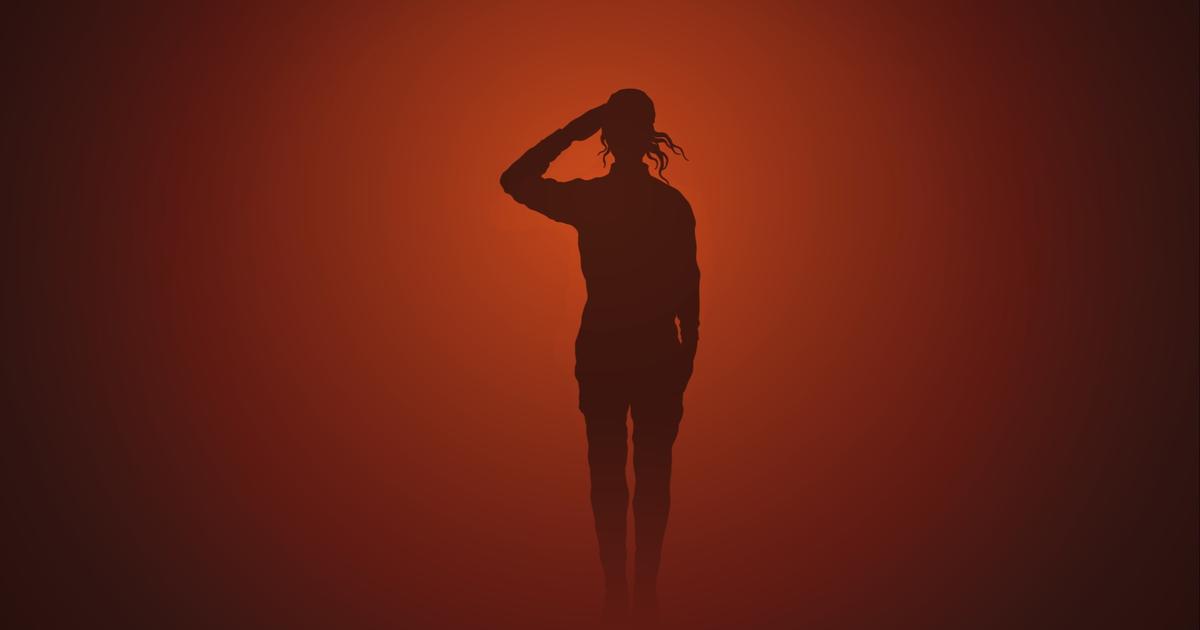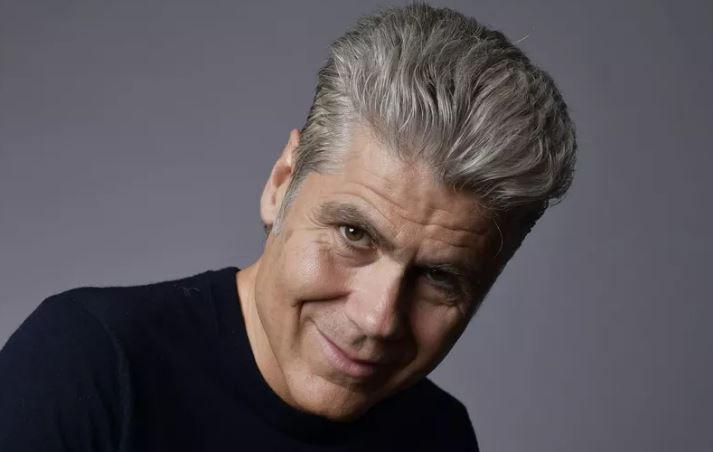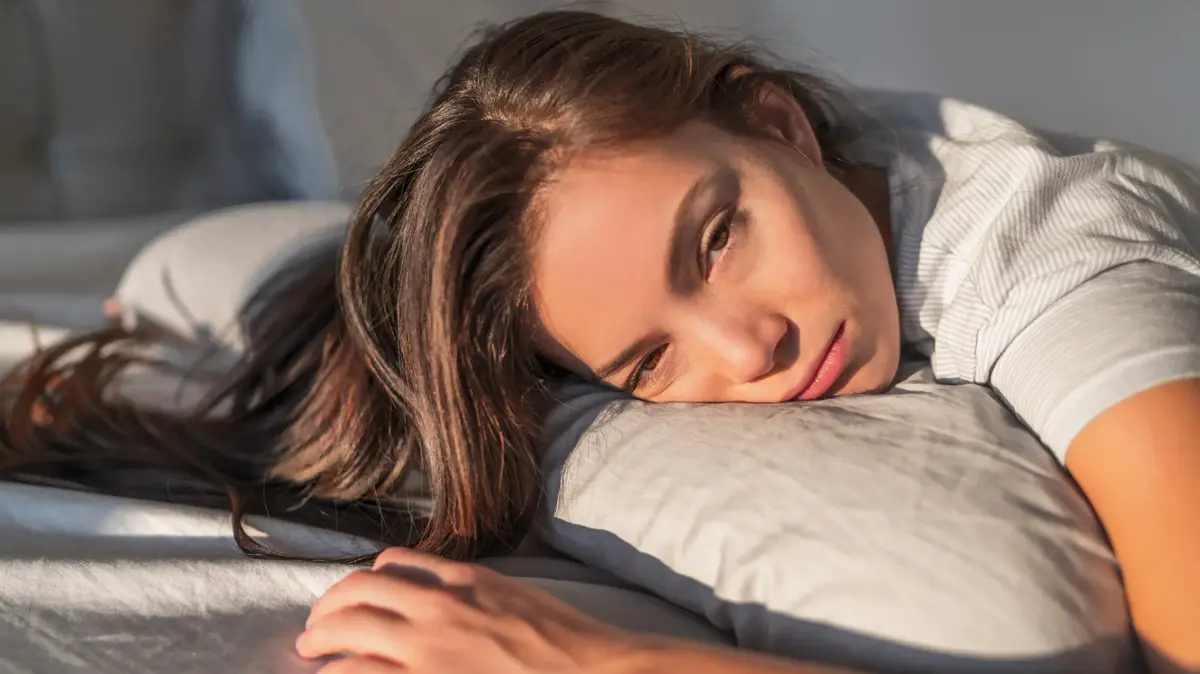It was a hectic day at work and full of obligations, but finally it is time to go to sleep.
The body relaxes, the muscles slack, the mind quiets: wakefulness is giving way to sleep.
And although it seems that the long-awaited rest will soon be reached,
a spasm breaks out
, which in a disruptive way makes us move the body and startles it.
This sensation, which could be described as
vertigo
, does not last long, and in fact many times does not wake us up, but drags us to an intermediate state in which we easily re-enter the waking-sleep zone.
We may have been dreaming that we fell or simply falling asleep.
What happens to the body and brain at those times?
Should we be alarmed if it happens to us often?
Is it linked to stress, to the difficulty of relaxing,
giving up control
and surrendering to sleep?
Is there any truth to the theory that it is an ancestral reflection of when we slept in the trees?
Stress and excess coffee can promote nocturnal spasms, Photo Shutterstock.
nocturnal myoclonus
The truth is that this kind of
disruptive pause
at the door that mediates between wakefulness and sleep has a name, or rather several: nocturnal or hypnic myoclonus, myoclonic spasms, hypnic jerks.
As Sofía Lujan, a specialist in Neurology and member of the Argentine Association of Sleep Medicine, explains, these are "
involuntary, abrupt, brief and simultaneous contractions
of the body -or of some parts of the body-, which occur in the wake-sleep transition and they can be spontaneous or occur before stimuli during the muscular relaxation typical of this transition”.
He also points out that they can be
unique or multiple
, in the latter case they occur consecutively and could be related to an awakening.
Meanwhile, Stella Maris Valiensi, neurologist at the Italian Hospital in Buenos Aires and president of the Argentine Association of Sleep Medicine (AAMS) indicates that they can be focal (in
one
leg, or both legs), or
generalized
(when arms move and legs).
why they occur
First of all, it is important to note that it is very likely that you have experienced nocturnal myoclonus once or several times in your life: "This is a highly prevalent phenomenon in the population: it was published that up to 70% of people of
all
ages and genres experience them, although they could be more frequent in childhood”, says Luján.
Now, why do they happen?
“They can appear as a
defense mechanism
and be associated with micro-arousals, for example when a person is very stressed”, comments Valiensi.
The question is, if we find ourselves sleeping,
what
would we be defending ourselves against?
A myoclonus may or may not imply an awakening.
Photo Shutterstock.
"When they occur at the beginning of sleep, hypnic myoclonus occurs simultaneously with
changes in breathing,
decreased heart rate, muscle relaxation, changes in body temperature, normal processes that occur in our body when we begin to sleep", introduces the neurologist .
And he continues: "Now, according to this hypothesis, our brain interprets that these changes are too many,
that we can die
, and it sends a nerve impulse to try to revive the body... an innate defense mechanism."
Also, it gives an account of the knowledge that circulates in a popular way regarding that it is an
ancestral vertigo
from the time when we slept in the trees.
Is it a myth without scientific support?
"It is also a medical hypothesis -he answers and continues-, apart from the fact that the brain interprets that we may be dying, it may be a defense instinct, since when the human being took refuge and slept in the trees, before the imminence of
a fall
or from the proximity of a wild beast the jolt appeared to be able to support a foot on the floor.”
What diseases can it be associated with?
Valiensi points out that the most common is physiological myoclonus, that is, “normal”, although in certain cases
pathological myoclonus should be
ruled out .
"Associated diseases can be, for example, lack of oxygen or hypoxia, we see them when someone has
apnea
or respiratory pauses while sleeping and oxygen drops, it's like a micro-awakening and the body shakes associated with that apnea," he explains.
"It is rare to observe but there are some types of
drugs
that promote some type of apnea and that can cause one to have pathological myoclonus," he adds.
The doctor affirms that there is another type of myoclonus: “for example, if the jerks persist upon awakening in the first hours, they may be associated with a type of epilepsy,
but
we are talking about more complex myoclonus here, and a good diagnosis is required neurological".
Finally, he mentions other conditions of the central nervous system such as
degenerative diseases or dementia.
However, he clarifies that in young people who do not have a history or any other disease, and if they appear in the first phase of the night, they
are most likely normal
or physiological.
Factors that can favor myoclonus
Finally, he mentions other factors such as
stress
, lack of sleep, certain positions, which can favor hypnic myoclonus, as well as a lack of magnesium, iron, or excessive high-impact exercises.
Luján adds that the consumption of
alcohol and nicotine
, as well as stimulants such as coffee, cola, tea, mate, energy drinks, are factors that increase their frequency, particularly because they are associated with a greater state of "alertness" during this transition.
Lastly, he clarifies that hypnagogic jerks
do not require treatment
: “They are not considered a disease and do not cause complications.
If they cause discomfort in the person, the treatment focuses on reducing the possibility that they appear by improving 'relaxation' or decreasing alertness during sleep conciliation”.
***
➪ Do you have any questions about health and well-being that you would like us to address in section notes?
Enter the Clarín Help Center by clicking here, enter
Message to the newsroom
and then
Questions to Buena Vida
.
Write us your query and send.
Done!
look also
World Sleep Day: Is it possible to sleep well after 60?
REM sleep is "magical": experts explain why it is so important




/cloudfront-eu-central-1.images.arcpublishing.com/prisa/7GBYEZIDTZEK7NLSBDHWXQXBFY.jpg)










